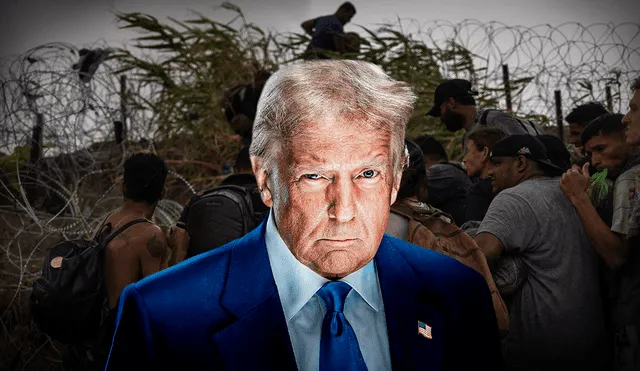Trump revokes humanitarian parole for 530,000 immigrants, leaving them vulnerable to deportation
The Trump administration has ended humanitarian parole for more than 530,000 migrants from Cuba, Venezuela, Nicaragua, and Haiti, potentially exposing them to faster deportation. This policy change is set to take effect on April 24, 2025.

The Trump administration has made a significant shift in U.S. immigration policy, revoking humanitarian parole for over 530,000 immigrants from Cuba, Venezuela, Nicaragua, and Haiti. This change could put them at greater risk of swift deportation. The new policy will be implemented starting on April 24, 2025.
This move, set to take effect on April 24, 2025, will strip these individuals of their temporary legal status, leaving them at risk of deportation. The revocation is part of a broader crackdown on immigration programs, and it poses a significant challenge for those who were relying on this status to remain in the U.S.

ALSO SEE: Judge Lawrence VanDyke’s unconventional dissent: disassembling guns to challenge gun magazine ban
Trump revokes humanitarian parole affecting over half a million immigrants
The Trump administration has moved to revoke the humanitarian parole status granted to more than 530,000 migrants, primarily from Cuba, Venezuela, Nicaragua, and Haiti. The policy, which was put in place during the Biden administration to offer temporary legal status to immigrants with U.S. sponsors, is now being dismantled. This decision, effective April 24, 2025, marks a significant shift in U.S. immigration law, particularly concerning individuals who entered legally through the parole program.
This policy change puts more than half a million immigrants at immediate risk of deportation. According to the Department of Homeland Security (DHS), migrants who have not secured other forms of legal status, such as Temporary Protected Status (TPS) or asylum, will face rapid deportation processes. The revocation will affect various nationalities, with significant numbers of Haitian, Venezuelan, Cuban, and Nicaraguan nationals at risk.
Vulnerable immigrant groups: Who is affected by the human parole policy change?
The most impacted by this decision are migrants from countries with unstable political climates, particularly those from Nicaragua, Cuba, Haiti, and Venezuela. Many of these individuals do not qualify for other forms of relief, such as TPS, leaving them vulnerable to deportation and family separation.
- 213,000 Haitian
- 120,700 Venezuelan
- 110,900 Cubans
- 93,000 Nicaraguans
Trump's broader offensive against immigration policies
Immigration advocates and legal experts are sounding alarms about the potential consequences of this policy change. With limited options for securing other legal statuses, many migrants face a precarious future. Advocacy groups have urged those affected by the revocation to seek legal advice immediately to avoid being caught in expedited deportation proceedings.
This move is part of Trump's ongoing efforts to tighten U.S. immigration policy, especially concerning programs initiated under the Biden administration. Along with the revocation of parole, the DHS has suspended work permits and other related benefits for migrants covered under this program. Critics argue that these changes will disrupt the lives of thousands of vulnerable immigrants who have relied on these protections for their safety and livelihood.












